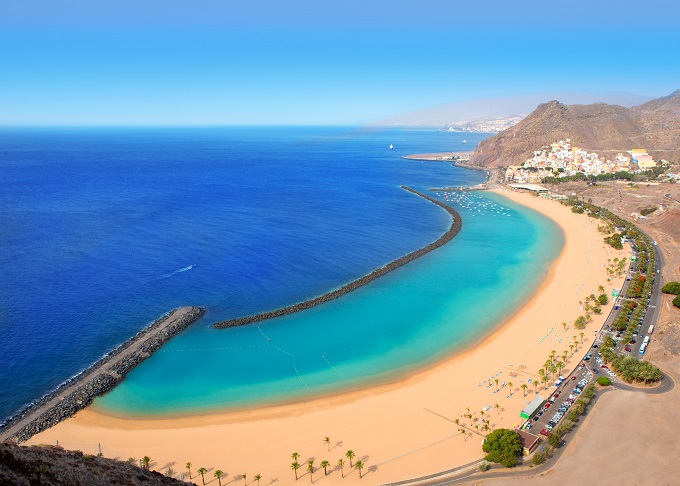 Do XV w. Tenerife was inhabited by Guanches - people of Berber origin (originally from North Africa). W 1402 r., the Spaniards came to the island, who after the battle of 1495 r. they defeated the indigenous people of Tenerife. Defeated Guanches, or they assimilated and converted to Catholicism, or they were transported to Europe as slaves. This resulted in the almost complete disappearance of their Guanche culture.
Do XV w. Tenerife was inhabited by Guanches - people of Berber origin (originally from North Africa). W 1402 r., the Spaniards came to the island, who after the battle of 1495 r. they defeated the indigenous people of Tenerife. Defeated Guanches, or they assimilated and converted to Catholicism, or they were transported to Europe as slaves. This resulted in the almost complete disappearance of their Guanche culture.
W 1797 r., The British attacked Tenerife. They wanted to take over the seat of the Spanish authorities, Santa Cruz of Tenerife. The attack on the British fleet was led by Admiral Horatio Nelson.
At the beginning of its "European" history, Tenerife was experiencing an economic boom. It was an important transit point on the shipping route to the Americas. W 1821 r., the island was incorporated into Spain. Before World War II, w 1936r., the island was taken over by General Franco with his army. During his reign, Tenerife has been hit by economic problems, so in the 50's, began to depopulate - many of the island's inhabitants emigrated.
In years 60- these, the island was transformed into a tourist zone. Currently, it is one of the most visited tourist regions not only in Europe, but also the whole world.
The first Spanish capital of Tenerife, do 1723 r., was La Laguna - a city located in the middle of the island, away from the coasts attacked by pirates. Currently, the capital of Tenerife is Santa Cruz de Tenerife, located in the north-east of the island.
Tenerife is a mixture of three cultures - African, Latin and European. Spain had the greatest influence on the development of the island's culture, to which the island was subject from the 15th century.
The main religion on the island is Catholicism. Despite, you can see small temples in many places, dedicated to the local saint.
The official language of the island is Spanish, however, English is also commonly used. In the language of the people of Tenerife, you can hear, remnants of the Guanche culture, which include, among others: language of whistles "Silbo". It can be used over long distances, especially in hard-to-reach mountain areas.
The people of Tenerife are famous for their kindness and hospitality. The driving culture is also very high, and pedestrians always have priority